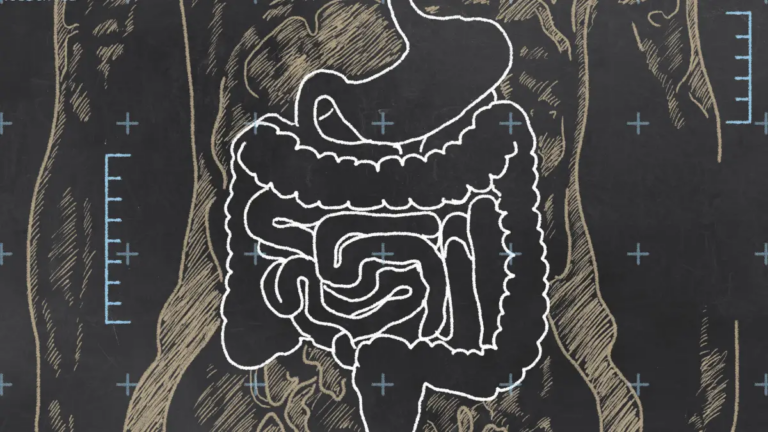One of the most common types of infection in the body is urinary tract infection (UTI). A urinary tract infection affects any part of your urinary system, including the kidneys, bladder, ureters, and urethra.
In the United States, UTIs account for more than 8 million visits to the doctor each year and are more common in women than in men. [1]
UTI occurs when microorganisms or bacteria enter the bladder or urethra and cause inflammation and infection. Bacteria can also travel up the ureters and infect the kidneys.
Treatment for UTIs is usually antibiotics. However, re-infection may be likely as continued use of antibiotics destroys good bacteria, and the gut microbiome becomes unbalanced. [2]
For more information about gut health, take the Gut Health Quiz and learn how to enhance your overall well-being.
The Urinary Tract System
The urinary tract system filters the blood and makes urine from waste products and extra fluid not required by the body. It consists of two parts, the upper urinary tract, which includes the kidneys and ureters, and the lower urinary tract consisting of the bladder and urethra.
- Kidneys: Bean-shaped organs located just below the rib cage, at the back of your body, with one on each side of your spine. They filter waste and excess fluid from your bloodstream, turning it into urine.
- Ureters: Thin tubes that carry urine from the kidneys to your bladder.
- Bladder: Stores your urine in a sac-like repository before leaving the body.
- Urethra: A tube that carries urine from your bladder to the outside of the body.
Each function of the urinary tract has a separate role to play. Your kidneys remove waste and extra fluid from the blood to make urine, which flows through the ureters to the bladder. Urine is stored in the bladder until it leaves the body through the urethra when you go to the bathroom.
Symptoms of Urinary Tract Infections
When the urinary tract becomes infected, it causes the lining of the urinary tract to become inflamed. The kidneys and bladder may also become infected, resulting in acute pyelonephritis and cystitis, respectively.
Occasionally there is no indication, but the following symptoms can display signs of infection:
- A frequent need to urinate
- A burning sensation or pain when urinating
- Visiting the bathroom frequently despite an empty bladder
- Urine that appears cloudy
- Urine that is dark in color, red, or bright pink (which can indicate bloody urine)
- Strong-smelling urine
- Discharge
- Pelvic pain
- Pain or cramps in the lower abdomen or groin area
- Chills
- Lower back pain or discomfort in the side of your back around the kidneys
- Nausea or vomiting
- The need to urinate at night [3]
Other less common symptoms that may be associated with a urinary tract infection include:
- Pain during sex
- Penis pain
- Fatigue
- Fever (high temperatures) and chills
- Vomiting
- Mental changes or confusion [4]
How to Prevent Recurrent UTI
UTIs are one of the most common forms of infection, with estimates that up to 60% of women will have at least one urinary tract infection in their lifetime. Out of those women, 25-30% will have a recurrent infection within a year. [5, 6]
Recurrent infections in both women and men may also lead to other health conditions, such as anxiety, depression, kidney problems, and even sepsis (a life-threatening condition).
Reducing the risk of infection is possible by taking the following steps:
- Drink at least 2 to 3 liters of water or other fluids daily.
- Choose a contraceptive method that does not use spermicide, as it can harm the good bacteria in the vagina.
- After sex, urinate as soon as possible.
- Postmenopausal women may benefit from vaginal estrogen therapy.
- Wipe from front to back, although not conclusively proven effective.
- Limit the use of antibiotics and use them only when an infection occurs [6]
Strengthen your immune system with supplements to help fight against infection. Visit the Health Hero Pharmacy today.

Is the Answer in Our Guts?
Urinary tract infections are usually treated successfully with antibiotics. However, overuse can lead to bacteria becoming resistant and can lose their effectiveness over time. They can also kill good bacteria, leaving the body more susceptible to further infection, as disease-causing bacteria (E. coli) in the intestines can multiply and spread easier. E. coli is the cause of up to 90% of urinary tract infections. [7, 8]
A study published in Nature Microbiology found that the answer to recurrent urinary tract infections may be related to the gut microbiome. [9]
Over one year, researchers studied 15 women with recurrent UTIs and 16 women that had none. They had blood and urine samples taken at the beginning of the study, plus monthly stool samples. The research team assessed the bacterial composition in the stool samples, tested the urine for bacteria, and measured gene expression in blood samples.
At the end of the study, 24 UTIs occurred, all in participants with a history of recurrent UTIs. Participants diagnosed with a UTI had additional urine, blood, and stool samples taken and analyzed.
Results showed that participants that suffered recurrent UTIs had a decreased diversity of healthy gut microbial species, providing disease-causing bacteria with a better environment to multiply and cause infection.
The gut health of women with recurrent UTIs was deficient in bacteria that produce butyrate, a short-chain fatty acid with anti-inflammatory effects.
Co-author of the study, Colin J. Worby, Ph.D., believes that “women in the control group were able to clear the bacteria from their bladders before they caused disease, and women with recurrent UTIs were not, because of a distinct immune response to bacterial invasion of the bladder potentially mediated by the gut microbiome.
“Our study clearly demonstrates that antibiotics do not prevent future infections or clear UTI-causing strains from the gut, and they may even make recurrence more likely by keeping the microbiome in a disrupted state.” [9, 10]
Keeping Your Gut Healthy
Having a diverse variety of good bacteria in your gut can have a positive effect on your health and helps you avoid infections and inflammation in your urinary tract system.
Improving your gut microbiome and bolstering your immune system by eating healthily, staying hydrated, exercising, lowering stress levels, and getting enough sleep will produce several health benefits, not just preventing urinary tract infections
To learn more, take the Gut Health Quiz and discover ten scientifically supported ways to improve your gut microbiome.

Sources
- Understanding UTIs Across the Lifespan – Urology Care Foundation
- Antibiotics Can Kill Healthy Gut Bacteria
- Urinary Tract Infection | Antibiotic Use | CDC
- Urinary Tract Infections: Causes, Symptoms & Treatment
- An introduction to the epidemiology and burden of urinary tract infections – PMC
- When urinary tract infections keep coming back – Harvard Health
- Recurrent UTIs linked to gut microbiome, chronic inflammation
- Bacterial characteristics of importance for recurrent urinary tract infections caused by Escherichia coli
- Longitudinal multi-omics analyses link gut microbiome dysbiosis with recurrent urinary tract infections in women | Nature Microbiology
- Recurrent UTIs linked to gut microbiome, chronic inflammation





















